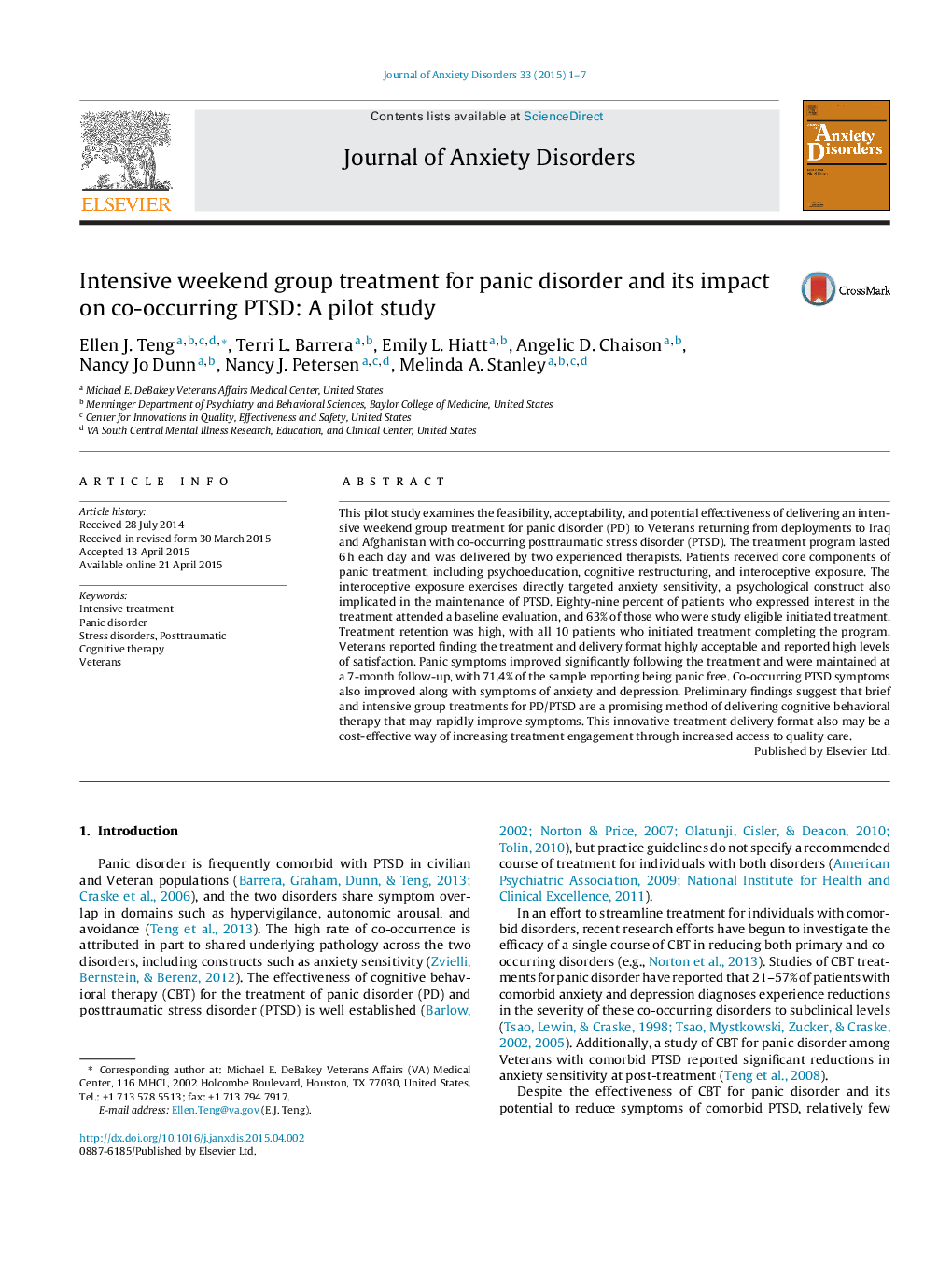ترجمه فارسی عنوان مقاله
درمان گروه آخر هفته فشرده برای اختلال ترس و تاثیر آن بر اختلال همزمان استرس پس از سانحه : یک مطالعه مقدماتی
عنوان انگلیسی
Intensive weekend group treatment for panic disorder and its impact on co-occurring PTSD: A pilot study
| کد مقاله | سال انتشار | تعداد صفحات مقاله انگلیسی |
|---|---|---|
| 60284 | 2015 | 7 صفحه PDF |
منبع

Publisher : Elsevier - Science Direct (الزویر - ساینس دایرکت)
Journal : Journal of Anxiety Disorders, Volume 33, June 2015, Pages 1–7
ترجمه کلمات کلیدی
درمان فشرده؛ اختلال هراس؛ اختلالات استرس، پس از سانحه؛ درمان شناختی؛ جانبازان
کلمات کلیدی انگلیسی
Intensive treatment; Panic disorder; Stress disorders, Posttraumatic; Cognitive therapy; Veterans

